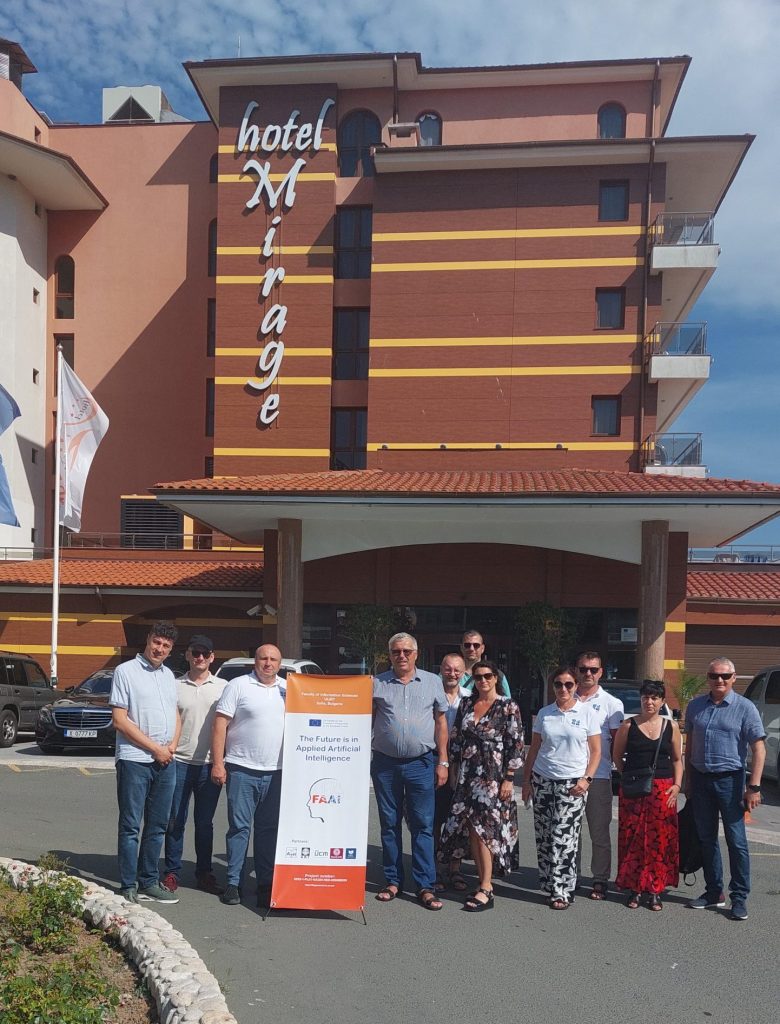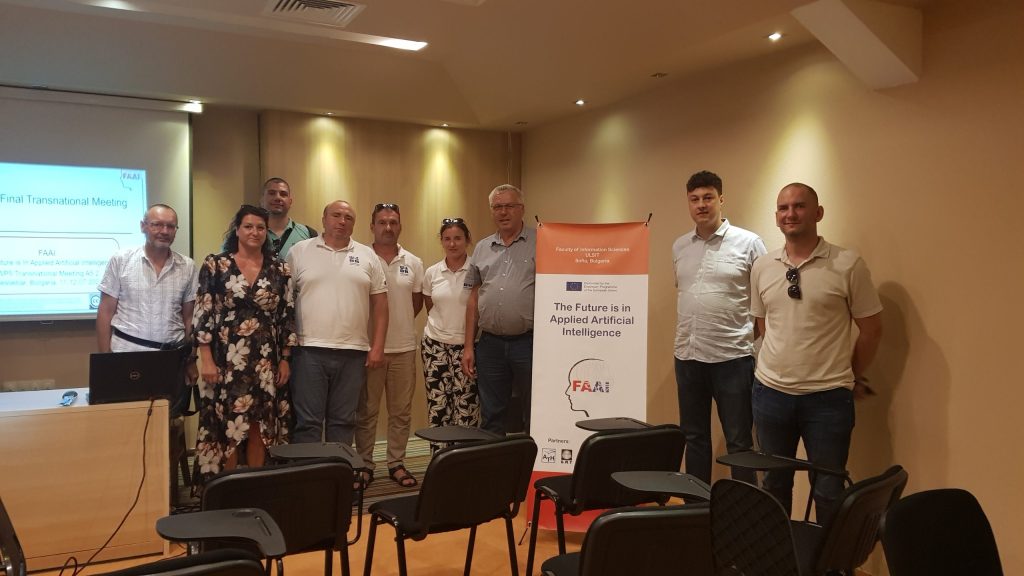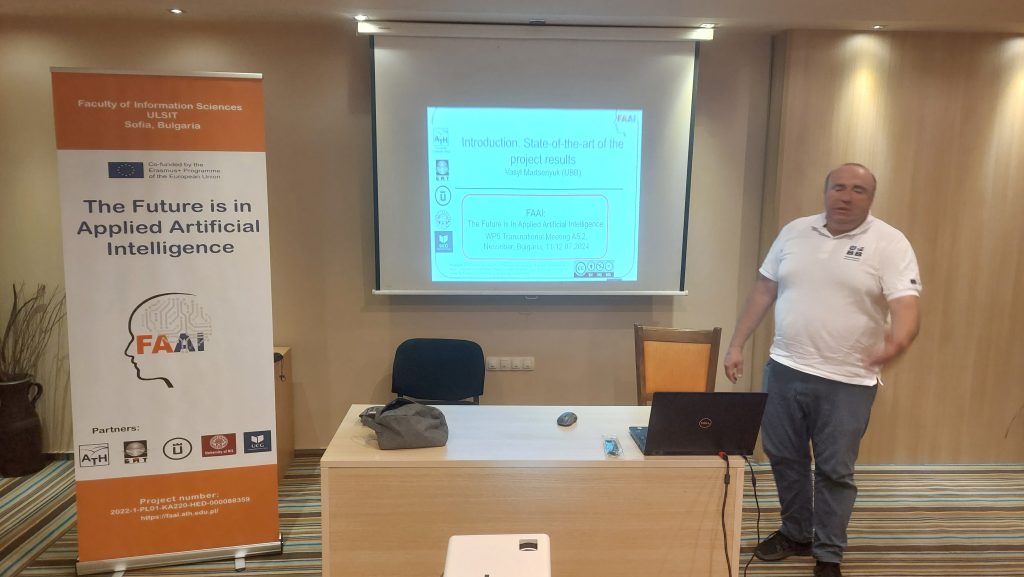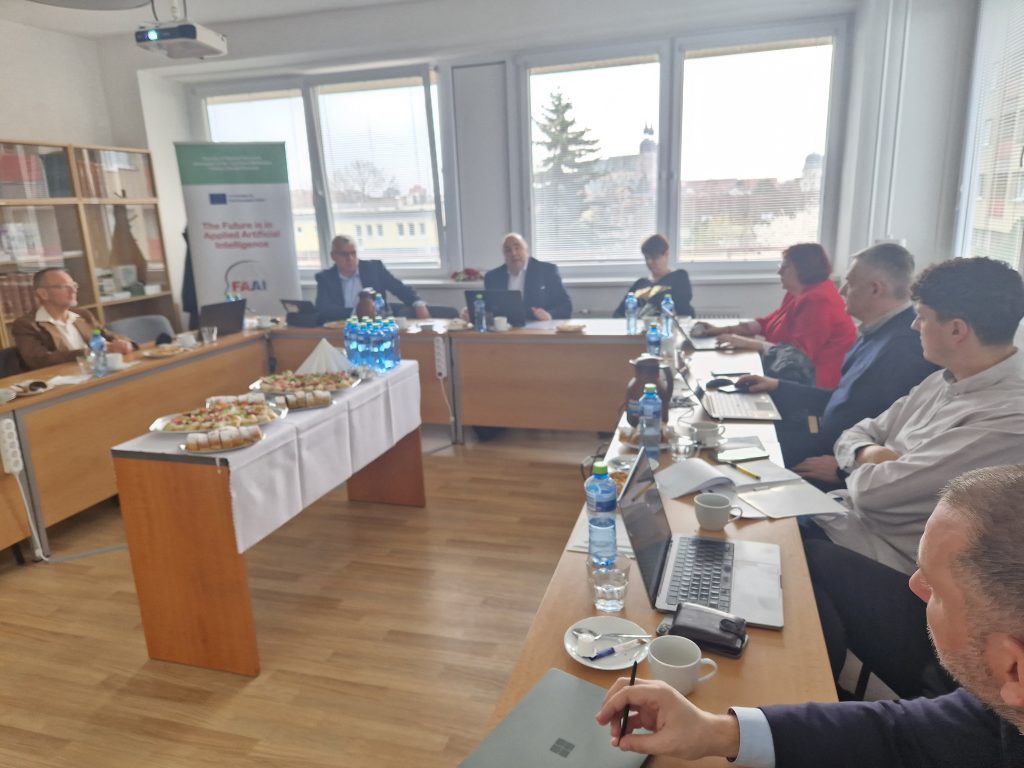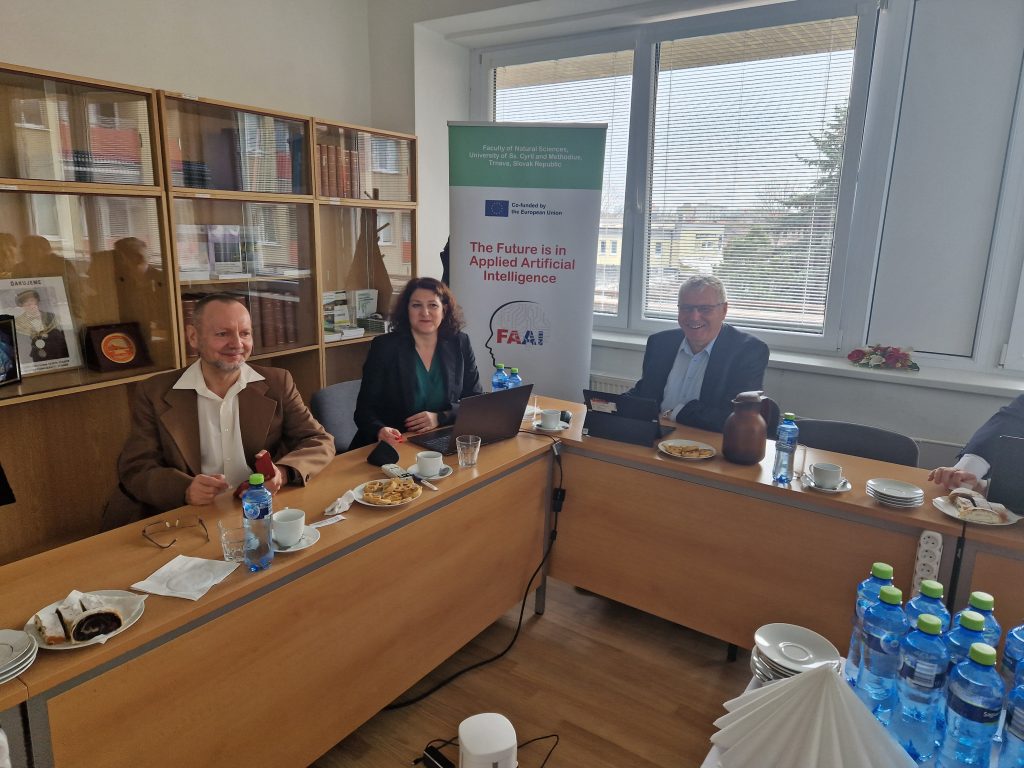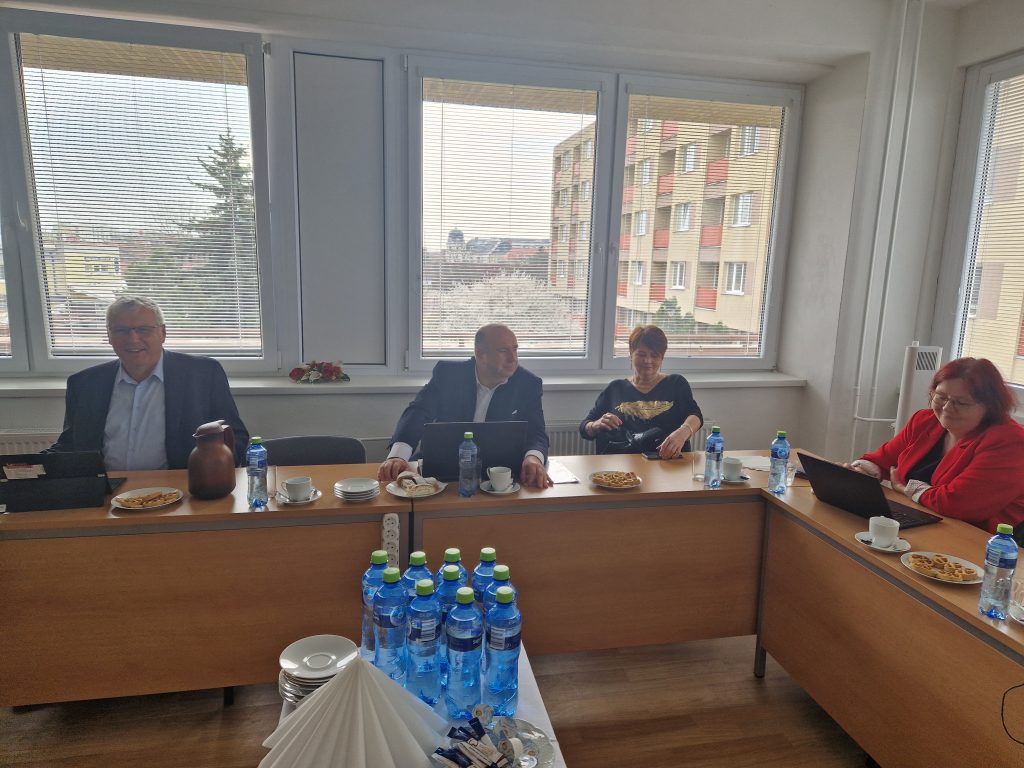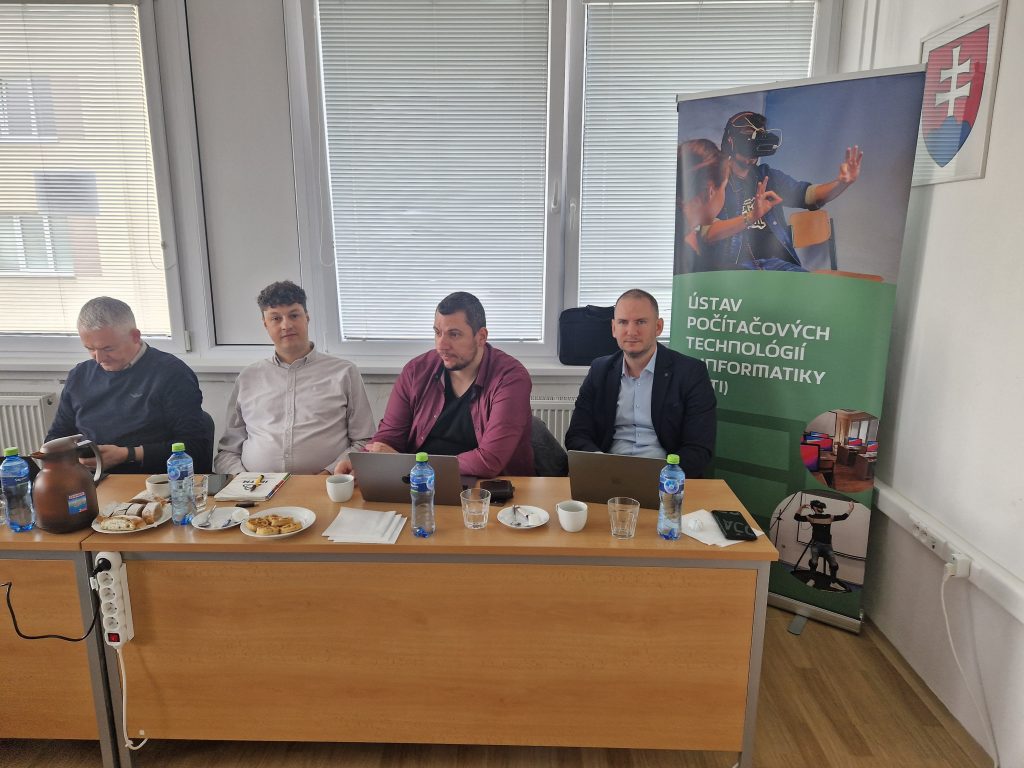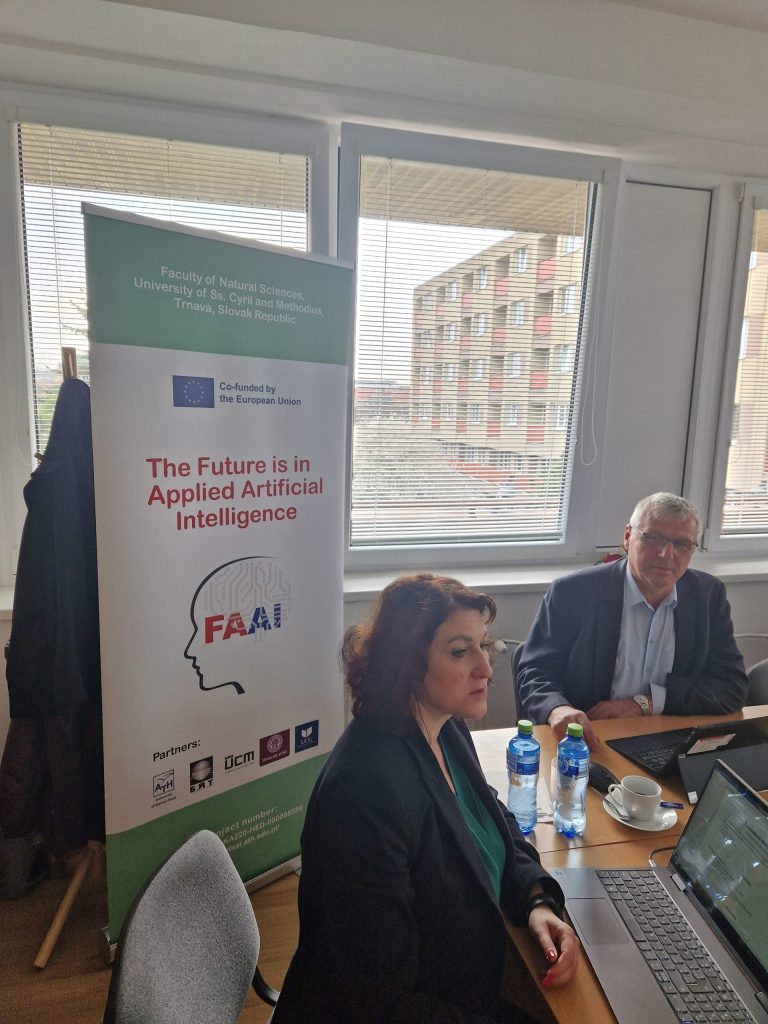A5.2: Final project meeting in Bulgaria
Project Meeting A5.2 in Nessebar, Bulgaria
Dates: July 11-12, 2024
Location: Nessebar, Bulgaria
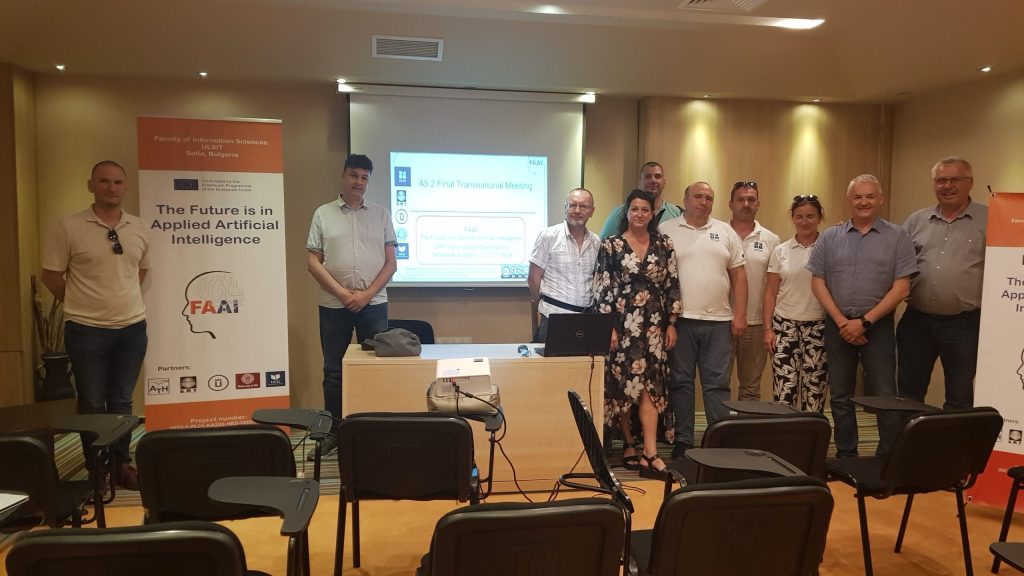
The transnational meeting A5.2, a crucial event under Work Package 5 (WP5) of the FAAI project, was held on July 11-12, 2024, in the historic coastal town of Nessebar, Bulgaria. This meeting marked the final managerial gathering of the project, bringing together key representatives from five partner institutions to discuss the dissemination and exploitation of the training materials and thesaurus in artificial intelligence (AI) and machine learning (ML). The target audiences for these materials include students, teachers, mentors, and managers, emphasizing the project’s commitment to enhancing educational practices and professional development in AI.
Participating Institutions:
- University of Bielsko-Biala, Poland (UBB)
- University of Library Studies and IT, Bulgaria (ULSIT)
- The University of Niš, Serbia (UNI)
- The University of Ss. Cyril and Methodius in Trnava, Slovakia (UCMT)
- University of Montenegro, Montenegro (UoM)
Meeting Agenda and Highlights
Day 1: July 11, 2024
The meeting commenced at 9:30 AM with a welcome and introduction delivered by representatives from ULSIT. The opening remarks set the tone for collaboration and reflection on the project’s achievements, emphasizing the significance of this final meeting in consolidating the efforts of all partners.
Following the introduction, participants engaged in discussions regarding the local dissemination results as outlined in document A4.7. Each coordinator presented reports detailing their institution’s outreach strategies, engagement activities, and the impact of these initiatives on raising awareness of AI and ML training resources. This collaborative review provided valuable insights into best practices and lessons learned, fostering a sense of collective responsibility for the project’s success.
After a brief coffee break, participants reconvened for a session focused on task performance reports, where they reviewed the key performance indicators across various work packages:
- WP2: Discussed good practices in the implementation of AI and ML, highlighting innovative pedagogical strategies and successful classroom applications.
- WP3: Covered the establishment of AI learning requirements, focusing on the skills and competencies necessary for students and professionals in the AI field.
- WP4: Provided insights into the development of an AI framework for training in higher education, emphasizing the integration of AI into curricula to enhance educational outcomes.
- WP5: Highlighted insights from the piloting activities, showcasing real-world applications of the developed materials and their effectiveness in educational settings.
Following a lunch break, the meeting resumed with an examination of the final local dissemination results (A5.7). Coordinators shared their reflections on the effectiveness of their dissemination strategies, discussing both quantitative and qualitative outcomes. This session aimed to synthesize findings to inform future dissemination efforts and enhance the visibility of the project’s outputs.
The afternoon included a financial management report presented by all coordinators, focusing on budget allocations, expenditures, and financial sustainability strategies. This discussion was pivotal for ensuring that all partners had a clear understanding of the financial health of the project and the implications for future activities.
The day concluded with an engaging session dedicated to discussing and shaping the final evaluations of project results. Participants collaboratively identified strengths, areas for improvement, and recommendations for future projects, ensuring a comprehensive assessment of the project’s impact.
An informal dinner was held in the evening, providing participants with an opportunity to network, share experiences, and reflect on the collaborative journey undertaken throughout the project.
Day 2: July 12, 2024
The second day began at 10:00 AM with a critical session focused on signing agreements for the sustainability of project outputs post-completion. This agreement signified a collective commitment from all partners to continue promoting and utilizing the training materials developed during the FAAI project. It emphasized the importance of ensuring that the resources remain available and beneficial to the targeted audiences long after the project’s conclusion.
Following this, the group engaged in a discussion and summary of the meeting, where coordinators shared their reflections on the meeting’s outcomes. This final session was instrumental in preparing a comprehensive “TO DO” list, outlining actionable steps to ensure that all remaining tasks were addressed before the project officially concludes.
Conclusion
The A5.2 meeting served as a vital culmination of the FAAI project’s efforts, providing a platform for partners to reflect on accomplishments, share valuable insights, and solidify plans for the future. The collaborative atmosphere fostered open dialogue and strengthened relationships among institutions, highlighting the shared commitment to advancing AI and ML education.
The signing of sustainability agreements marked a significant milestone, ensuring that the training materials and resources developed during the project will continue to serve as valuable tools for educators and professionals. This commitment to sustainability underscores the project’s long-term impact on enhancing educational practices and fostering innovation in the field of AI across Europe.
As the FAAI project moves toward completion, the collaborative spirit and shared goals of the partner institutions will undoubtedly continue to influence the landscape of AI education, ensuring that the benefits of this initiative are felt by students, teachers, and industry professionals alike.
